Reinvented American mountain bike series struggles into the future
With the demise of the National Mountain Bike Series (NMBS) held annually in the United States,...
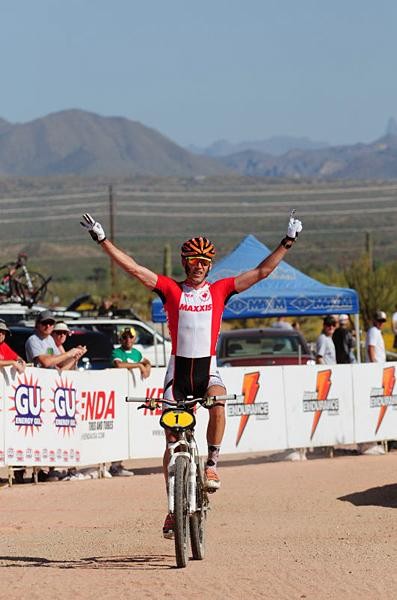
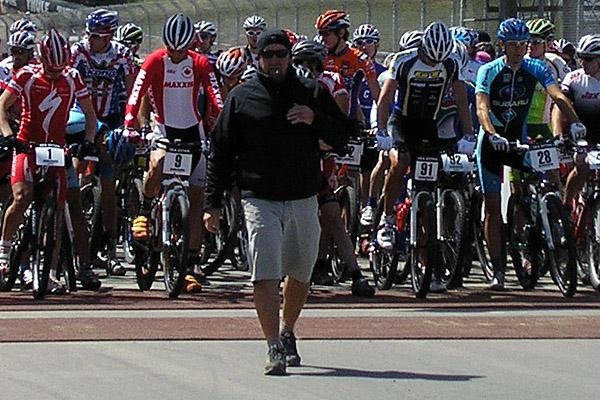
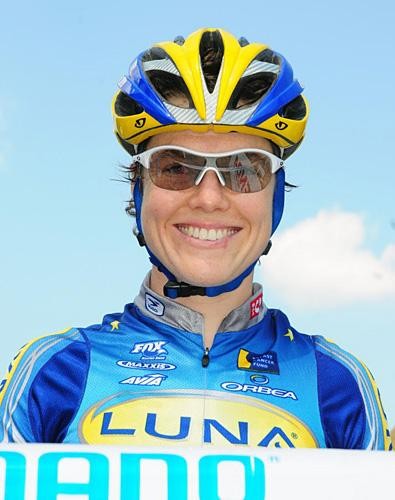
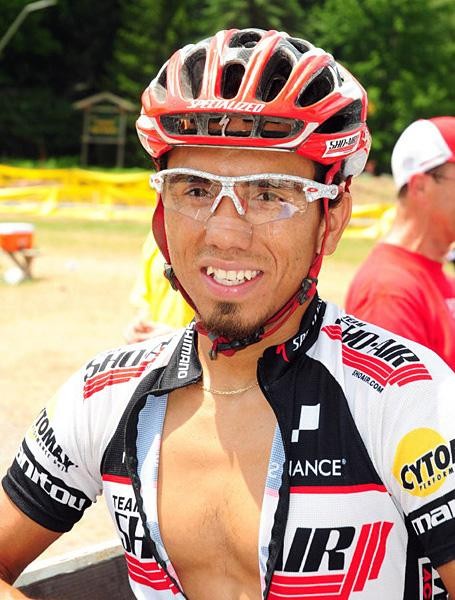
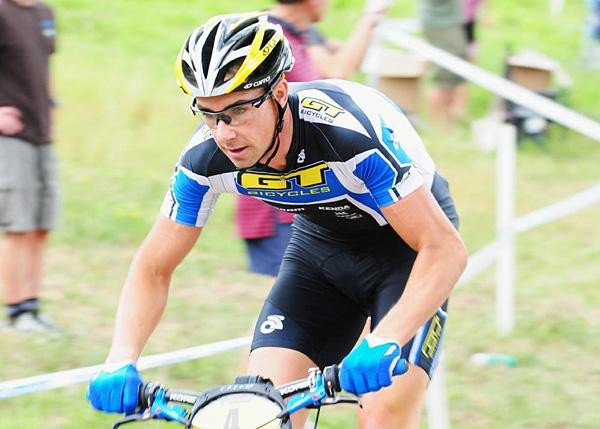
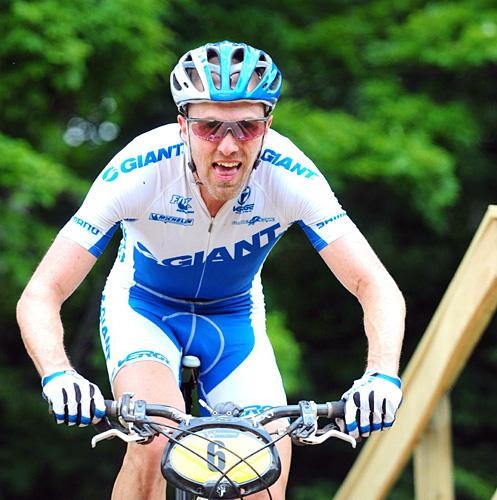
News Feature, September 26, 2008
With the demise of the National Mountain Bike Series (NMBS) held annually in the United States, North American mountain bikers were left wondering 'What's next?'. Going into the 2009 season, Team Sho-Air's Scott Tedro has stepped up to lead an effort to create a new national-level series: the US Cup. What remains to be seen is if Tedro and other advocates for the series can muster enough sponsorship to support the series. Although the members of the cycling industry have voiced general support for the new US Cup, sponsorship dollars have been slow to materialize.
The proposed US Cup would include races in Fontana, Laguna Seca and Los Olivos, California; Fountain Hills, Arizona; Angel Fire, New Mexico; Windham, New York; and Mt. Snow, Vermont, many of which were popular NMBS venues. Nearly all of the races, running from late March through early August, would award UCI points. Furthermore, the series would pay equal prize money to elite men and women and aim to provide a "very rewarding" experience for amateur racers.
Sponsorship woes
When Tedro put out the full series proposal and an initial call for sponsorship to monetarily support the new national-level series, a deafening silence followed.
"It is like beating my head against the wall. We are far away from our goal," said Tedro to Cyclingnews in early September. "Although everyone seems to want the series, not enough are stepping up."
Creating a series to replace the NMBS came with some baggage. Reading recent conversations on public forums, it's clear the NMBS has had its problems. In its later days, it seems not to have served the amateur racers as well as in past days, and many categories showed poor attendance at some venues.
The latest race content, interviews, features, reviews and expert buying guides, direct to your inbox!
"For the first 30 days [after proposing the US Cup], everyone could only say what was wrong with the NMBS," Tedro said. He wanted to move forward, taking what worked from the NMBS, discarding what didn't, and mixing in his own ideas.
After countless hours on the phone to industry players, Tedro won over Specialized, the first manufacturer to step up and sponsor the series. The company later increased is commitment and will now be the title sponsor of the series.
"It's great that Scott picked up the ball and worked to put together this series," said Ben Capron of Specialized to Cyclingnews. "We're really excited about the potential to build more momentum for domestic mountain bike racing. We think the series might be the vehicle to do just that.
"Our primary goal for being involved is to help support a series that can inspire people to come out and race and to give a platform for the best domestic and even international riders to compete."
Yet, Specialized's support alone wasn't enough to cover the budget for the series and Tedro continues to troll for additional sponsors.
Tedro hasn't given up hope. He extended his deadline for acquiring sponsorship from September 19 to October 3, after Interbike, a trade show where he is busy recruiting this week. Thus far, Hayes, Gary Fisher, Trek, ESI Grips are on board at various levels.
Now more optimistic that the series will go forward in one form or another, he admitted that he may have to scale down some of his ideas for the first year as the series becomes more established.
"It's at enough of a level of commitment level that I think we can pull it off," said Tedro earlier this week.
What happened to the NMBS?
With the exception of a few events such as Sea Otter and the US National Championships, the NMBS, which was run by Jeff Frost and Tom Spiegel in recent years, contained many of the non-World Cup top-priority events for elite racers, especially those from the US and Canada.
In addition to serving elite riders, the races were a place for up and coming young racers to prove themselves against North America's top talent without having to outlay the time and expense associated with travelling abroad to World Cup events.
"Frosty and Tom are heros in the industry. They have been beat up and criticized for the past five years," said Tedro. "In the past, the races were subsidized in part by USA Cycling. Spiegel had been subsidizing the series ever since, hoping to get some help."
Spiegel of Team Big Bear Mountain Bikes and Frost of Blue Wolf Events will still be involved in the US Cup, if it happens. They will continue to work the aspects of racing they do best - logistics and operations.
"I'm truly an operations guy and so is Jeff Frost," said Spiegel. "We tried to piece it all together but we could never get out there and sell sponsorship adequately."
Hearing about the difficulty Tedro was having in acquiring full sponsorship, he said, "The problem you run into is the bike industry is cheap. We'll see if there is support from the bike industry. I have my doubts. I guess we'll see if it's important to the industry."
Reflecting on many years of work on the US Cup's predecessor, he added, "I think we've done a professional job. I'd hate to see a series go away, but maybe that's the best thing. In some ways, if it doesn't happen, it opens up some other opportunities."
Life after NMBS
Without the races of an NMBS-like national series, the US would be left with few races offering UCI points, and USA Cycling announced on Thursday that is including all the proposed US Cup races in its Mountain Bike National Calendar (MBNC) for cross country.
At World Cups, UCI points are what determines who starts in what position. Racers new to the international elite circuit must have some minimum number of points to earn a starting spot, and those with the most points get the best starting positions - a crucial factor in doing well in a 200-man field at a typical European cross country World Cup.
The accumulation of UCI points by riders determines national rankings, something important in divvying up the Olympic Games spots. Nations that are not represented regularly at UCI races are far less likely to earn valuable points to secure the right to send one, two or three riders to the Olympics Games.
The absence of an obvious national series, with a clearly defined set of races for elite riders to attend, could mean that North America's best riders would spend a majority of their time in Europe, in search of top competition. They might also race more regional events, but there they would face lesser competition, earn less prize money, and collect few or no UCI points.
"If there is no US series, riders will have to go live in Europe. That means the manufacturers that sponsor them will have to pay a lot more money, maybe ten times as much, to support their riders," predicted Tedro, who explained why he thought that industry money invested in sponsoring the US Cup would be well spent.
Tedro is taking on a big responsibility in trying to cater to both elite athletes and amateurs, who often have very different goals and perspectives on what makes a successful racing weekend.
First, for the elite riders, he is attempting to inscript all the series races as UCI categorized events. Thus far, all except the Fontana race, seem to be on track. [A date conflict with the Continental Championships may preclude Fontana being categorized as a UCI race. - ed.]
"It costs money to do UCI races. With $4,750 going to the UCI plus $6,500 for officials and their travel expenses, it's about $10,000 to $12,000 per event." Tedro has been working with Kelli Lusk at USA Cycling to obtain the UCI categorizations.
Looking hard at the bottom line, Tedro said that in the days when the NMBS was most viable, it used to get $30,000 of support per event from USA Cycling. Tedro explained that regardless of who provides the cash, a national-level series needs money to run. So his approach is draw upon sponsorship, improve marketing, and thereby add value for the racers and the series and current and future sponsors.
Tedro believes the sport of cycling does not fully market its heroes. With the US Cup, he will step up advertising in major publications; promote riders, teams and venues more; create a calendar with series riders and their sponsors; hold "Ride with a Pro" events; feature bike give-aways by sponsoring manufacturerers; promote school visits by top pros; and create a manufacturer's cup to be held by the manufacturer supporting the top scoring team of the season.
For the amateurs, he intends to increase race swag in the form of T-shirts, water bottles, gels, drink mixes, and pro-like number plates. He will also limit the number of races needed to qualify for the series to four - in order to make overall participation more affordable.
"The key to getting the numbers of racers and spectators up is getting people there," he said. " But I don't believe cycling is a spectator sport in the US. It's a participatory sport."
Getting there from here
As the owner of Sho-Air International, a $17 million air freight shipping company, Tedro is first and foremost a businessman. With that, he brings business and marketing skills.
After the terrorist attacks of September 11, Tedro's business plummeted and he was forced to lay off many long-time employees, cutting his company down to about half its original size. The stress of tough times took a toll on Tedro, whose health subsequently suffered.
"Four years ago, I weighed 225 pounds and had 25% body fat. I smoked three packs of cigarettes a day and drank a six pack and a half of beer every night."
"I was basically trying to kill myself without pulling the trigger," he said. Thanks to encouragement from his wife, Tedro made a commitment to start taking care of himself again.
"I owe it to mountain biking and road riding. It's been an outlet for stress and helped me get healthy. On my first ride, I borrowed a mountain bike ride and rode 4.5 miles. I threw up three times and it pissed me off. I stopped smoking that day and didn't have another drink for a year."
Now he weighs a healthy 165 pounds and has nine per cent body fat.
Tedro and his company have long been involved in the local, California cycling community, but in 2008, Sho-Air International took on the promotion of the American Mountain Bike Classic, a first-year stage race held in Brian Head, Utah, in August.
So when the NMBS appeared to be in jeopardy, a group of riders thought Tedro was the man who could save the national series.
After the National Championships in Mount Snow, Vermont, racers Jeremiah Bishop, Adam Craig, Jeremy Horgan-Kobelski, Heather Irmiger and Carl Decker approached Tedro with a plea for help. "It's time to see a re-strengthening and restructuring of the national series - from a marketing standpoint," said US national marathon and short track champion Bishop. "It should be easier to get to events and be a representation of what events people are excited about."
"Where not having a national series would really hurt is the future of young athletes coming up and hoping to represent the US at the Olympics, Pan Am Games and World Cups," said Bishop.
But he is optimistic about the future of the US Cup. "Scott gets it. He's succeeded in business. When you look at his track record, he knows how to make it happen and he has a passion for the sport. This offers an incredible opportunity to start over."
Going forward
Tedro isn't afraid to admit that the US Cup has some shortcomings in its proposed form, but he sees 2009 as a bridge to a more comprehensive series in the future and is pleased with what he has put together on such short notice.
A few key decisions have made the series more accessible- it will now include the popular Sea Otter Classic, previously a stand-alone annual multi-day event. No longer on the schedule is the Brian Head, Utah, venue - in an effort to keep race venues more accessible to those travelling from afar.
In the future, Tedro would like to see about 10 races, spread more equally over the US. "I'd like some in the east, some in the west, and also in the mid-west. We'd also like to work on the dates, but this year, we were limited to those that were not already taken, and of course, the World Cup gets priority dates."
Proposed US Cup 2009
March 21-22: Fontana National - Fontana, California
April 4-5: Nova Classic, Fountain Hills, Arizona
April 16-17: Sea Otter Classic, Laguna Seca, California
April 25-26: Santa Ynez Cup, Los Olivos, California
May 24-25: Chile Challenge, Angel Fire, New Mexico
June 27-28: Windham Cup, Windham, New York
August 8-9: Snow Shootout, Mount Snow, Vermont
Sue George is an editor at Cyclingnews. She coordinates all of the site's mountain bike race coverage and assists with the road, 'cross and track coverage.